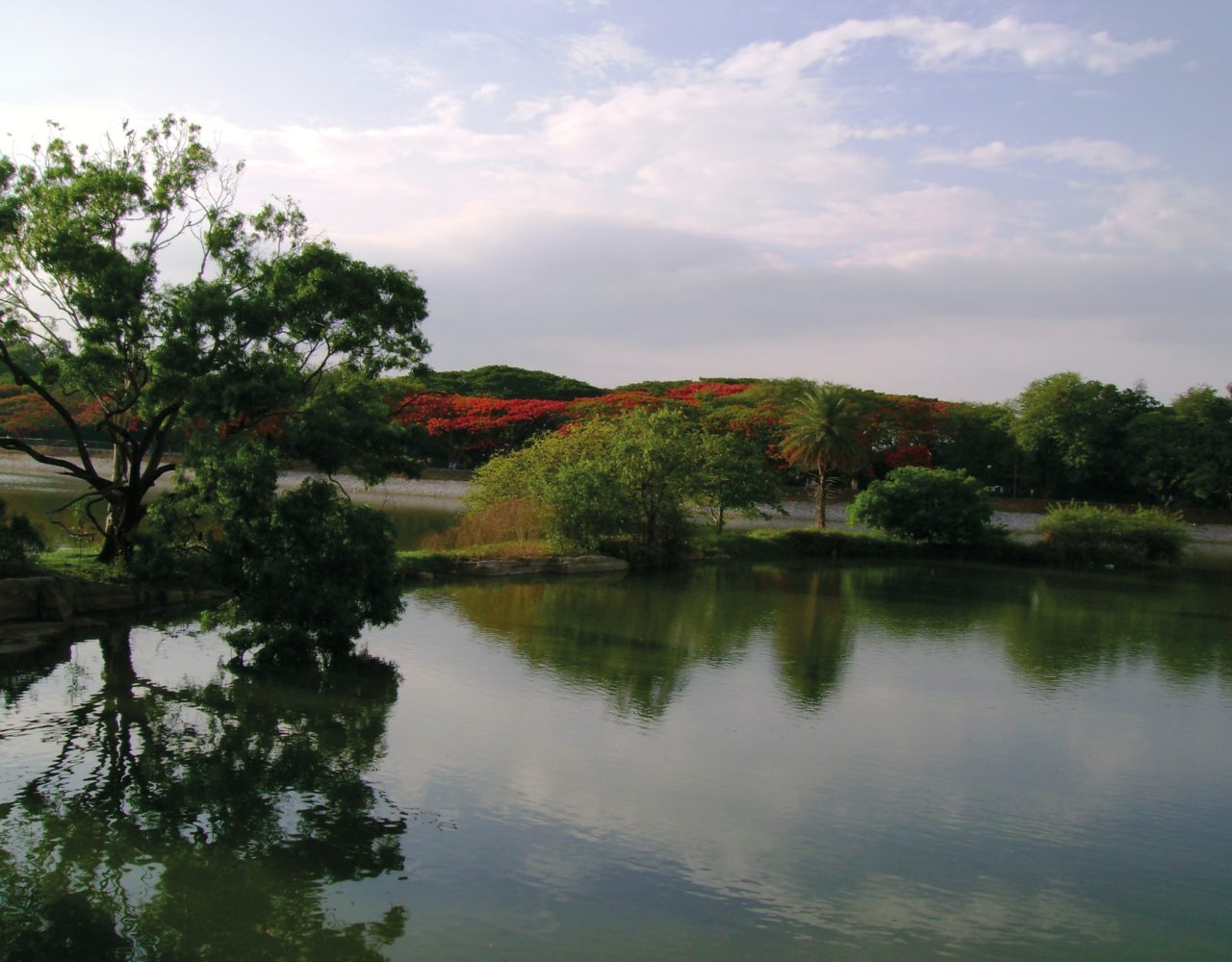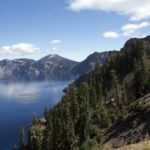
Can We Stop The Ecological Demise?

Can We Stop The Ecological Demise?
For quite some time now, the topic of environment is being widely debated and discussed. Obviously because the neglect of past decades and unimagined outcomes of the industrial processes of the last century are not only becoming manifest but are exposing the hard facts of the diminishing natural resources and the fear of meeting the demands of the present and future generations. The poetry, art and literature that had so sensitively defined and described the varied forms and patterns of Nature got banally and unscrupulously neglected by the emergence of a flurry of technological innovations that gradually dominated the academic corridors and educational establishments overshadowing the importance of literary and environmental influences ,especially on the minds of the younger generations.
The emphasis on economic growth pushed hard many parameters that either showed no relevance to the factors of environment or the protagonists of growth didn’t realize the importance of the environment. Such a mindset among the bureaucrats, technocrats and political administrators led to the gradual degeneration of the environment in most of the developing countries. The process of growth continues to push aside the importance of the environment which over a long period has caused irreparable damage to the ecology and various ecosystems of different regions. I am not trying to pin point any particular segment of the society or blame sections of the populations but placing before the readers as to how our environment has suffered badly due to callous indifference and neglect.
But at the same time not that all those involved in the processes of economic and industrial development were unaware of the environmental deterioration. Many were aware but didn’t do much to stop the annihilation of the environment. The reasons as to why they didn’t stop are best known to them!! One thing emerges clearly that the environment was relegated to seek more benefits from projects that encroached precious ecosystems.
The benifits that brought immediate comforts.
Its quite natural that humans forever are in search of comforts as they (comforts) make our lives easier, better and safer. And the way to get comforts is to transform the natural resources, which constitute our environment, into human needs and wants. Now, our comforts, as you understand, range from anything like a smart-phone to a modern set of furniture to a relaxed sojourn on a lagoon on an exotic island far away from your destination.
Now these comforts, believed to have promoted the standard of living of human populations, have come to mean the symbols of modern civilization. But humanity was not aware that vast swathes of environmental ruin lay beneath the façade of imposing superstructures that symbolized power, glory & might of the modern civilizations. We only wondered at & praised the modern civilizations but hardly ever bothered to evaluate how and at what cost these societies have emerged.
Thanks to the ecological fraternity and the scientific minded environmental enthusiasts who began to notice the serious damages the unbridled development & economic growth were causing to the environment and ecology of vast regions of the Earth. Many times the environmental pollution and degeneration goes unnoticed because it’s not easily felt and seen. The most painful thing is the vanishing of the wild life and other important plant and animal species.
We clear forests to make roads and many other projects thinking that we are only cutting trees and that trees / plants can be planted again. That’s true, but forests are not just trees. They are complex ecosystems consisting of animals, birds, butterflies, insects, bushes, climbers, creepers, grass & microbial life. And it takes hundreds and thousands of years for such a complex natural system to evolve and form. And there are several advantages and benefits of such forest ecosystems. These forests absorb solar radiation, produce oxygen, store water underground, purify air, regulate temperature, function like carbon sinks, create conducive climatic condition, etc., which in turn have soothing influence on agriculture, horticulture, animal husbandry & the like.
Similarly, the air that envelopes us and the air we breathe for survival is hugely polluted by the burning of fossil fuels which are used in enormous quantities to run the wide gamut of economic and industrial activities to maintain the modern civilized human societies. We do know that we need fresh, pure air to lead a healthy life and which is there all pervasive and in abundance. That really makes our life very comfortable. But we are not very happy with just pure air. We want material comforts, not ethereal comforts. And that’s what makes the difference to our lives and to the environment. And we seem to like that difference.
In the olden days it was said that people lived healthy & happy lives. They had much less comforts compared to the modern times. Not much urbanization, industrialization, transport, communication, etc., as we have today. People had no cellphones, not many cars and so many other comforts that we have today. People also had simple habits and showed more concern towards animals and nature. They protected forests, grasslands, lakes and the soil because they were in direct contact with these elements of nature. Hence they depended upon these components of the environment for their existence
they respected and worshipped nature.
What distanced us from nature was the process of urbanization, triggered by technological innovations. We could transform forests, water-bodies, grasslands and vast stretches of fertile soil into industrial hubs, commercial layouts and community dwellings by using modern machines and equipment.
Just in a few decades, the entire Indian natural landscapes have been usurped, urbanized and converted into concrete jungles radiating enormous heat and causing an ecological demise on a vast scale. The anthropocentric mindset of the present generations has been chiefly responsible for the environmental ills that are threatening to wipe away all life forms on this Earth.
It’s indeed a very serious matter – environment; it needs to be thought over, debated, discussed at every level and before every project that is launched in the name of development, lest it might jeopardize the very aim and object for which the project is conceived.
If we understand the importance of the environment now, let’s begin to act as to how we can save it and protect it .The ideal thing is to kindle the children and the youth by imbuing their minds with a sense of curiosity and adventure towards this ecological wonder, our unique environment.








